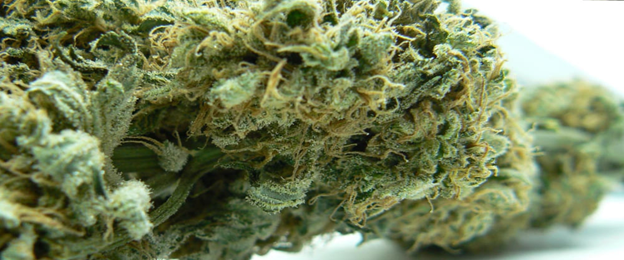Both of these cannabis sativa and medical marijuana contain the chemical delta-9 tetrahydrocannabinol. It is also referred to as Δ⁹-tetrahydrocannabinol. It forms a part of the main cannabinoids. When ingested, have an impact on both the physique and the mind.
The psychotropic effects of marijuana-related substances were generally misunderstood for a long time. However, industrial hemp hemp-derived goods with low tetrahydrocannabinol levels can now be purchased. And sold at the national scale according to the 2018 Farm Bill. Legal hemp-based products with high levels of Δ⁹-tetrahydrocannabinol have increased as a result of this development.
There are several ways to consume this, including vaping, topical treatments, sweets, and smoking hemp or marijuana flowers. Smoked weed is one of the increasingly prevalent methods to ingest Delta 9 THC.
Although it has been used to treat chronic pain, nausea brought on by chemotherapy, and sleep problems. It can also have short-term side effects including anxiety, lightheadedness, and insufficient balance. As well as lingering issues like dependence and cognitive problems.
Before utilizing Δ⁹-tetrahydrocannabinol goods for medical purposes. It is imperative to speak with a cannabis-friendly doctor.
Psychoactive Effects
Δ⁹-tetrahydrocannabinol interacts with the brain’s reward system to produce its psychoactive effects. This substance triggers the brain’s reward system.
This releases dopamine and produces pleasurable feelings. When it binds to the body’s cannabinoid receptors. This is the main cause of cannabis use’s intoxication effects – you may order online to find out about such impacts.
However, Delta 9 can result in both physical and psychological reliance, commonly referred to as marijuana dependence. Prolonged use of the drug may create marijuana addiction.
To reduce the chance of becoming addicted or abusing marijuana. It is crucial to be mindful of this possible hazard and utilize this sensibly and sparingly.
Medical Applications
It has several medicinal uses. Including treating sleep problems, controlling chronic pain, and relieving nausea brought on by chemotherapy. Even though it has long been used for medicinal purposes. It is crucial to utilize it carefully and under a healthcare professional’s supervision.
We shall examine the particular medicinal uses of Δ⁹-tetrahydrocannabinol. As well as go over its possible advantages in the parts of the systematic review that follow. It is important to remember that although Delta 9 has shown promise as a treatment. Additional study is required to completely comprehend its limits and medicinal uses.
Cancer-Related Nausea
The treatment of chemotherapy-induced nausea and vomiting was one of the first documented applications of Δ⁹-tetrahydrocannabinol. For the treatment of nausea and vomiting brought on by chemotherapy. It may have shown to be just as effective as conventional antiemetics, if not more so.
For patients with lung cancer receiving chemotherapy who are looking for respite from this crippling side effect. This has made it an alluring alternative.
However, it may mix with other drugs or create negative effects. It is imperative to speak with a healthcare provider. Before taking it to alleviate chemotherapy-induced nausea – see https://www.cancer.gov/about-cancer/treatment/side-effects/nausea/nausea-hp-pdq for more info. However, a major contributing element to the increasing interest in medicinal cannabis has been its ability to treat this painful ailment.
Management of Chronic Pain
Since it has been demonstrated to be effective. Especially in treating chronic discomfort in core neuropathy, fibromyalgia, and persistent non-cancer pain. It may provide relief to those who suffer from chronic pain.
It has also been shown to lessen discomfort in males who suffer from both chronic neuropathic and chronic radicular pain. This has caused a lot of people who are suffering from chronic pain. To look into the possible advantages of using Δ⁹-tetrahydrocannabinol as a possible additional or alternative kind of medication.
Although it holds promise in the treatment of chronic pain. It’s crucial to be mindful of possible adverse effects, including lethargy, disorientation, and dry mouth.
Before taking this for managing persistent pain. It is crucial to speak with a healthcare provider since it can react with other drugs. Just like any other medical therapy. So it’s important to discuss this with your doctor to prevent future problems.
Sleep Issues
It has been demonstrated that it helps those with sleep problems, such as insomnia, get better sleep. Cannabinoids, such as Delta 9 THC, have been proposed in clinical trials as a potential treatment for sleep-related conditions – go here to learn more. Such as sleep apnea and insomnia. The possibility of a remedy for sleep-related problems has drawn attention as a result.
However, its long-term impacts on the quality of sleep are still unclear. It is crucial to utilize this for trouble sleeping carefully. To guarantee safe and efficient usage for trouble falling asleep. It is important to speak with a healthcare provider first.
Syndrome of Cannabinoid Hyperemesis
It can directly cause medical disorders such as cannabis hyperemesis syndrome. Cannabis consumption can cause recurrent nausea, vomiting, and stomach discomfort in people with cannabinoid hyperemesis syndrome or CHS.
The Federal Law
This is prohibited in the United States by federal law as it is categorized considered a Schedule I substance. Federal legislation, however, permits the use of this substance generated from hemp.
As long as its dry weight content is less than 0.3%. This difference between Delta 9 THC generated from hemp and marijuana emphasizes how complicated its federal legal position is.
Users must be aware of the federal regulations about Delta 9 THC. Since, even if it is allowed in their state, they might be prosecuted. That is if they are caught carrying marijuana-derived Delta 9 THC.

